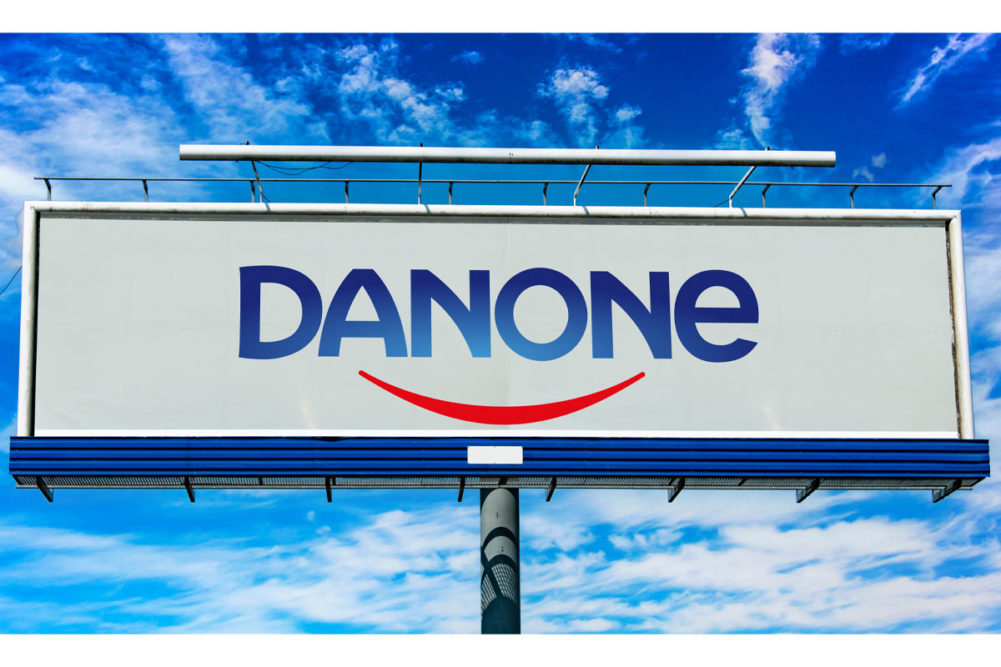PARIS — With the food industry at a “tipping point,” Danone SA will be leaning more toward science and innovation, operational discipline and proactive portfolio management in the 2025-28 period.
As a result, the Paris-based multinational, known for its yogurt, bottled water, dairy- and plant-based products and specialized nutrition brands, expects to post like-for-like sales growth of 3% to 5% during that time and for recurring operating income growth to exceed net sales. Danone reported total 2023 sales of €27.619 billion ($29.84 billion), a 7% like-for-like increase and at the top end of its guidance for last year.
At a June 20 investor day in Amsterdam, Antoine de Saint-Affrique, chief executive officer, described today’s Danone as being very different from the Danone of two years ago, and that its “renew strategy” will project the company into the future of health and nutrition where the role food plays in health will become more critical.
“We now have the right fundamentals in place to turn Danone into a truly science-based, consumer- and patient-centric company with an even stronger focus on our unique health-focused mission,” he said.
De Saint-Affrique plans to accomplish this by gradually shifting how Danone handles the protein and gut health categories, ramping up in its Away-from-Home and Medical Nutrition business models and expanding its footprint to become “a truly multichannel company.”
In his investor day presentation, de Saint-Affrique said health and nutrition are more intertwined than ever, and that changes in the ways consumers eat, age and live are structural tailwinds for Danone. He called the company’s “cutting-edge science” a unique asset that can bridge health and consumer goods across categories, giving the examples of gut and microbiome and the protein space.
Danone has gone through a “radical transformation” in the past two years and is much stronger today than the company consumers used to know, de Saint-Affrique said. During the period, Danone went through a “deep and very public governance crisis” and a significant restructuring and was viewed by some as both underperforming and unreliable, he said.
“… the fact is that, despite the quality of our assets, the company was simply not delivering and had accumulated a number of gaps,” de Saint-Affrique said. “Against this backdrop, we defined an ambitious plan to bring back Danone where it belonged.”
The CEO, named in May 2021 to the top job at Danone, previously led Barry Callebaut from 2015-21 and spent 15 years at Unilever before that. He took a balanced business approach at Barry Callebaut aimed at enhancing shareholder value over a model focused on growth at any cost, according to a profile in the Financial Times published shortly after he was hired by Danone.
On de Saint-Affrique’s watch, Danone has, among other initiatives, partnered on precision fermentation, launched a line of dairy and dairy snacks, acquired a feeding tube company and may look for further acquisitions in the medical nutrition category.
He noted at the investor day that the two-year “cultural reset” at Danone has been broad and deep and included renewal of the board with a combination of industry knowledge and seniority complimented by expertise in health, nutrition and sustainability. In addition, half of the executive committee has been changed and includes talent from both inside and outside the company, he said.
“We are now running the ship with better visibility, with better control and also with better clarity on the role and contribution of each country and each function,” de Saint-Affrique said, adding that the result has been to make Danone a more consumer-centric and much more competitive company.
“There is probably no better example of it than what we did in dairy, notably in North America and Europe,” he said. “We prioritized the platforms where we wanted to play, we clarified the swim lane of our brands and started to implement a renovated portfolio strategy, and it shows in the numbers.”
Danone’s fourth-quarter sales in North America slipped 2% but grew 1.3% in the first quarter of this year. On a Feb. 22 earnings call, de Saint-Affrique said North America volume/mix had shown resilience in the fourth quarter primarily due to coffee creamers and Greek yogurt.
Juergen Esser, Danone’s group deputy CEO for finance, technology and data, acknowledged in April more work was needed to enhance market share for its US plant-based business by price-correcting to increase competitiveness. US consumers have become more cost-conscious due to inflation, so the company also has had to navigate those choppy waters.
The latest results of the company’s efforts will be available with Danone’s next quarterly earnings report, which is scheduled to be released July 31.



